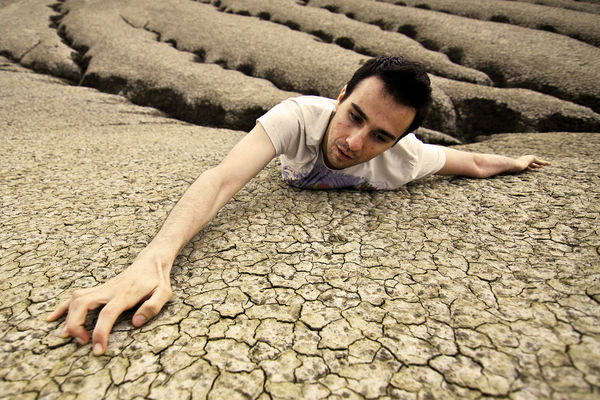As temperatures throughout most of the U.S. continue to set record highs this summer, the National Oceanic and Atmospheric Administration has stated that the first six months of 2012 ranks as the warmest in recorded history. In recent years, heat has surpassed such natural conditions as tornadoes and the freezing cold as the most deadly weather-related phenomenon in the U.S., according to the Centers for Disease Control and Prevention. In June and early July alone this year, 46 deaths have occurred due to exposure to extreme heat.
During such a historic heat wave, people everywhere need to make sure to stay hydrated so their bodies can deal with the extreme temperatures. Dehydration occurs when the body loses more fluids than a person takes in, and severe dehydration can even lead to death. Knowing the signs of dehydration, and how to treat and prevent the condition, can help keep you functioning during the coming dog days of summer.
Warning Signs and Symptoms
Spend more than few minutes outside during this current heat wave, and you’ll probably start sweating out valuable fluids. Dehydration on severely hot days can happen quickly, especially if you fail to prepare for the time spent outside by hydrating before leaving the house. They symptoms of dehydration can range from the minor to the severe and include the following:
- Dryness in the mouth and a swollen tongue
- Increased thirst
- Feeling lightheaded or dizzy
- A racing or pounding of the heart
- Disorientation and confusion
- Fainting
- An inability to sweat
- Decreased urination
- Muscle cramps
These symptoms can last for several days until you’ve become fully rehydrated. However, your symptoms could progress, and you may need to seek emergency medical care if you experience any of these conditions:
- Fever over 103 degrees
- An inability to concentrate or focus
- Feeling too sluggish or lethargic to move
- Pounding headache
- Seizures
- Troubled or labored breathing
- Abdominal or chest pains
- A failure to urinate for 12 hours
Treatment and Prevention
If you experience the symptoms of mild dehydration, there are several steps you can take at home to help restore your bodily fluids. Begin by taking small sips of water, or suck slowly on ice chips or popsicles made from juice. It’s important to rehydrate slowly so you don’t overload your body when trying to return lost fluids. You may also want to consider drinking beverages that contain electrolytes, such as Gatorade, to help revitalize the body.
There are also several steps you can take to help prevent becoming dehydrated. Wear lose, light colored clothing when you go outside, and take extra water with you if you plan on staying outside or are attending any outdoor events. You should also avoid exercising outside on days with a high heat index or at least exercise at sunrise or sunset when temperatures are lower than during midday. Finally avoid drinking any alcohol while out in the heat, as alcohol helps to increase water loss, and could impair your ability to recognize the early signs of dehydration.
Timothy Lemke blogs about health for Dr. Kurt Tingey, a Vancouver WA dentist at Smiles Family Dental.
